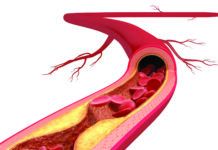Vitamin D, known to be crucial to bone health, may also boost the muscle strength necessary for seniors to perform daily tasks. New research presented at the recent Experimental Biology conference reports that elderly people with higher blood levels of the sunshine vitamin are more likely to have better physical function.Current dietary recommendations are based primarily on vitamin Ds effects on bone health, explained lead researcher Denise Houston, PhD, RD, of Wake Forest University. It is possible that higher amounts of vitamin D are needed for the preservation of muscle strength and physical function as well as other health conditions.Houston and colleagues studied 2,788 generally healthy people, average age 75, living in Memphis and Pittsburgh. Researchers tested blood levels of vitamin D at the studys start. Physical function was evaluated by walking speed, how quickly participants could rise from a chair five times, and ability to maintain balance in progressively more challenging positions at the studys start and after two and four years. Other tests measured endurance and strength.Two-thirds of the elderly participants had insufficient levels of vitamin D, and 90% consumed less than the recommended amount of the vitamin. Although the skin naturally manufactures vitamin D when exposed to sunlight, in the wintertime its difficult to get adequate sun to maintain vitamin D levels. And even fortified foods such as milk-with 100 IU per cup-must be consumed in quantity to reach the 600 IU recommended by the Institute of Medicine for people over age 70. (The institute is currently evaluating those recommended levels, which many experts believe are too low.)Researchers found that people with the highest blood levels of vitamin D scored best on the tests of physical function. Although physical function declined overall during the four years of the study, it remained significantly higher among those with the highest initial vitamin D levels.Its not surprising that vitamin D might be important for maintaining muscles. A recent McGill University study, published in the Journal of Clinical Endocrinology and Metabolism, reported an association between low vitamin D levels and the accumulation of fat in muscle tissue-which leads to reduced muscle strength. A panel of the European Food Safety Authority also concluded that a cause and effect relationship has been established between the dietary intake of vitamin D and contribution to the normal function of the immune system and healthy inflammatory response, and maintenance of normal muscle function.But this latest study, which has yet to be published in a peer-reviewed journal, wasnt designed to establish cause and effect. So its possible, researchers cautioned, that those who are better able to get out and about have more vitamin D because theyre out in the sun, making it naturally.Clinical trials are needed to de- finitively determine whether increasing vitamin D concentrations through diet or supplements has an effect on these non-traditional outcomes, Houston added.In the meantime, given the proven importance of vitamin D to bone health and emerging science suggesting still other benefits, it cant hurt to make sure youre getting enough.
- #7213 (no title)
- About
- Cart
- Checkout
- Contact the Editor
- Contact Us
- Content restricted
- Customer Service
- Glossary
- Nutrition 101 – Glossary – J
- Nutrition 101 – Glossary – K
- Nutrition 101 – Glossary – L
- Nutrition 101 – Glossary – M
- Nutrition 101 – Glossary – N
- Nutrition 101 – Glossary – O
- Nutrition 101 – Glossary – P
- Nutrition 101 – Glossary – Q
- Nutrition 101 – Glossary – R
- Nutrition 101 – Glossary – S
- Nutrition 101 – Glossary – T
- Nutrition 101 – Glossary – A
- Nutrition 101 – Glossary – B
- Nutrition 101 – Glossary – C
- Nutrition 101 – Glossary – D
- Nutrition 101 – Glossary – E
- Nutrition 101 – Glossary – F
- Nutrition 101 – Glossary – G
- Nutrition 101 – Glossary – H
- Nutrition 101 – Glossary – I
- Nutrition 101 – Glossary – U
- Nutrition 101 – Glossary – V
- Nutrition 101 – Glossary – W
- Nutrition 101 – Glossary – X
- Nutrition 101 – Glossary – Y
- Nutrition 101 – Glossary – Z
- Manage Email
- My Account
- OFIE – Subscriber only
- Online Account Activation
- Privacy Policy
- Products
- Products
- Register
- Register
- Registration Complete
- Registration Complete
- Sample Page
- Subscribe
- Subscribe Now
- Tufts & Health Nutrition
- Tufts & Health Nutrition | JH Inforce
- Tufts & Health Nutrition | JHV Employee
- Tufts & Health Nutrition | John Hancock
- Tufts & Health Nutrition | Manulife Asia
- Tufts & Health Nutrition | Manulife Vitality
- Tufts & Health Nutrition | NU101
- Tufts & Health Nutrition | Tufts Employees
Copyright 2020 Tufts University Health & Nutrition Letter

























